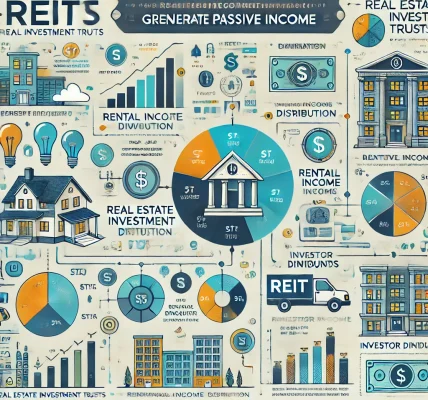Introduction
Real estate investment is often seen as a lucrative opportunity to build wealth, but many investors overlook the hidden costs that can quickly eat into their profits. Understanding these expenses and budgeting for them properly is crucial for long-term success. In this guide, we’ll break down the hidden costs in real estate investment and provide a step-by-step approach to budgeting effectively.
1. Common Hidden Costs in Real Estate Investment
a. Closing Costs
Closing costs include expenses such as title insurance, attorney fees, loan origination fees, and escrow charges. These fees typically range from 2% to 5% of the property’s purchase price.
How to Budget:
- Request a loan estimate from your lender.
- Factor in at least 5% of the purchase price to cover closing costs.
b. Property Taxes
Many investors focus only on the purchase price and forget about property taxes, which can fluctuate based on the location and property value assessment.
How to Budget:
- Check the local tax rates in the area.
- Set aside an escrow account to manage tax payments.
c. Insurance Costs
Standard homeowner’s insurance may not be enough, especially for rental properties or properties in high-risk areas.
How to Budget:
- Compare multiple insurance providers.
- Consider landlord insurance or additional coverage for disasters like floods and earthquakes.
d. Maintenance and Repairs
Unexpected repairs can quickly become a financial burden. Routine maintenance, plumbing fixes, and roof repairs are common hidden costs.
How to Budget:
- Set aside 1%–2% of the property’s value annually for repairs.
- Conduct regular property inspections to avoid major expenses.
e. Vacancy Costs
Rental properties may not always be occupied, leading to loss of rental income.
How to Budget:
- Have a contingency fund covering 3-6 months of expenses.
- Market your property effectively to minimize vacancy periods.
f. Property Management Fees
If you hire a property management company, expect to pay 8%-12% of the monthly rent in fees.
How to Budget:
- Evaluate if self-management is an option.
- Compare management firms to get the best deal.
g. HOA Fees and Special Assessments
If your property is in a homeowners’ association (HOA), be prepared for monthly dues and unexpected special assessments.
How to Budget:
- Review HOA documents before purchasing.
- Maintain a buffer fund for special assessments.
h. Legal and Compliance Costs
Real estate investments must comply with local laws, which may require legal consultations or permit fees.
How to Budget:
- Consult a real estate attorney.
- Research zoning and rental regulations before purchasing.
2. Step-by-Step Budgeting Plan for Hidden Costs
Step 1: Calculate Fixed and Variable Costs
Make a detailed list of recurring and one-time expenses.
Step 2: Establish an Emergency Fund
Keep at least 3-6 months’ worth of expenses in reserve for unexpected costs.
Step 3: Use a Budgeting Tool or Spreadsheet
Track all expenses using real estate budgeting software or a customized spreadsheet.
Step 4: Review and Adjust Regularly
Market conditions and property values change, so revisit your budget quarterly.
Conclusion
Being aware of hidden costs in real estate investment can save you from financial pitfalls. By proactively budgeting and planning, you can maximize returns while minimizing risks. Whether you’re a first-time investor or a seasoned pro, understanding these expenses will help you make smarter, more profitable investment decisions.
Key Takeaways:
- Always account for closing costs, taxes, insurance, and maintenance.
- Prepare for vacancies and unexpected legal fees.
- Create an emergency fund and track your expenses carefully.




